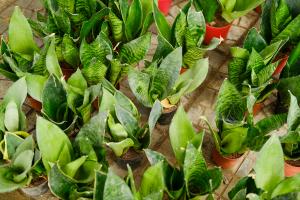Are Fake Plants Good for Mental Health?
Fake plants have been a subject of debate for a long time. Some people believe that they are just a waste of money, while others argue that they serve a purpose. In recent years, there has been a growing interest in the mental health benefits of fake plants. This article will explore the question of whether fake plants are good for mental health and the reasons behind the answer.
The Benefits of Having Plants
There is no denying that plants are great. They provide oxygen, help purify the air, and can give a space a calming and refreshing vibe. Furthermore, studies have found that plants can help reduce stress levels, increase productivity, and even improve cognitive function. However, not everyone has a green thumb. Some people struggle with keeping plants alive, and this is where fake plants come in.
The Advantages of Fake Plants
While fake plants do not provide the same health benefits as real plants, they do have their own advantages. First and foremost, fake plants require no maintenance. They do not need to be watered, fertilized, or pruned, making them perfect for people who do not have the time or skills to care for real plants. Fake plants are also ideal for those with allergies or who are sensitive to strong scents, as they do not emit any pollen or fragrances.
Fake Plants and Mental Health
So, are fake plants good for mental health? The answer is yes. While they may not provide the same benefits as real plants, they can still have a positive effect on our mood and well-being. The presence of fake plants can create a sense of calm and tranquility in a space, which can be especially beneficial for those who suffer from anxiety or depression. They can also help create a sense of connection to nature, which can have a calming effect on the mind and body.
The Drawbacks of Fake Plants
Despite the benefits, fake plants do have some drawbacks. For one, they are not environmentally friendly. They are typically made of plastic and are not biodegradable, which means they will end up in landfills and contribute to pollution. Additionally, fake plants may not look as realistic as real plants, which some people may find unappealing. It is also worth noting that fake plants cannot provide the same therapeutic benefits as real plants, such as reducing toxins in the air.
The Verdict
In conclusion, fake plants are good for mental health. While they may not provide the same benefits as real plants, they can still create a calming and refreshing atmosphere in a space. Fake plants are also low-maintenance, making them ideal for those who do not have the time or skills to care for real plants. However, it is important to consider the drawbacks of fake plants, such as their negative impact on the environment and their inability to provide the same therapeutic benefits as real plants. Ultimately, the decision of whether to use fake plants or real plants should be based on personal preference and lifestyle.

 how many times do yo...
how many times do yo... how many planted tre...
how many planted tre... how many pine trees ...
how many pine trees ... how many pecan trees...
how many pecan trees... how many plants comp...
how many plants comp... how many plants can ...
how many plants can ... how many plants and ...
how many plants and ... how many pepper plan...
how many pepper plan...





























